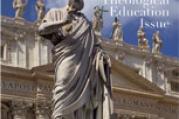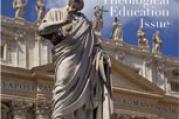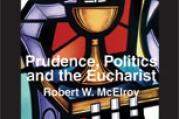Loading...
Click here if you don’t see subscription options
Click here if you don’t see subscription options

Both the developed and developing worlds are facing a critical moral choice in the controversial issue of genetically modified food, also known as genetically modified organisms and genetically engineered crops. Critics of these modifications speak dismissively of biotech foods and genetic pollution

Arts & Culture
Books
Feb 14, 2005 issueSamuel Huntington the Harvard professor who gave us The Clash of Civilizations and The Remaking of World Order has weighed in on the current discussions of religion politics race and ethnicity with his extended meditation or rather screed on American national identity It is a maddening book

News
Pope Hospitalized With Breathing ProblemsAfter Pope John Paul II was rushed to a hospital in Rome on the evening of Feb. 1 for treatment to help him overcome breathing problems, his condition stabilized and he was able to concelebrate Mass from his hospital bed, the Vatican spokesman reported. The H

"Is that stuff still going on?” the American college professor asked incredulously. He had heard of a Dalit boy whose college acceptance was revoked because he broke a coconut in his temple in the southern Indian state of Andhra Pradesh. The boy, overjoyed at having graduated with honors

Editorials
Despite high-profile death sentences like Scott Peterson’s in California, public support for the death penalty is falling. The reasons lie partly in mounting evidence that innocent people have been condemned andin some casesput to death. Supreme Court Justice Sandra Day O’Connor said in

News
Pro-Life Events Mark Roe v. Wade AnniversaryIn what was the first large-scale Roe v. Wade anniversary demonstration in San Francisco, 7,000 pro-lifers marched down San Francisco’s Embarcadero, along the city’s waterfront, in the Walk for Life West Coast on Jan. 22, the 32nd anniversary o

During the nearly 20 years I served as staff director of the Catholic bishops’ Committee on Science and Human Values, I frequently made the case that the annual dialogues the bishops conducted with scientists were a form of evangelization. The proposition usually provoked blank stares. Accordi

It was the most ambitious censorship drive the world has ever known, and the Rev. Hubert Wolf wants to reveal its secrets. Not only that, he wants to turn the Index of Forbidden Books inside out, posting on the Internet for all to see a guide to the confidential debates that lay behind it. Wolf is a

News
Vatican May Reopen Old Abuse ComplaintsA previously dormant case against Marcial Maciel Degollado, L.C., founder of the Legionaries of Christ, could be reopened at the Vatican Congregation for the Doctrine of the Faith, a Vatican lawyer said in a letter to three former members of the Legionaries who

Now that the turbulence surrounding the 2004 presidential election has abated, it is critical to revisit a question that deeply divided both the Catholic bishops and the Catholic laity during the heated months of summer: Should Catholic public officials who endorse the continued legalization of abor
